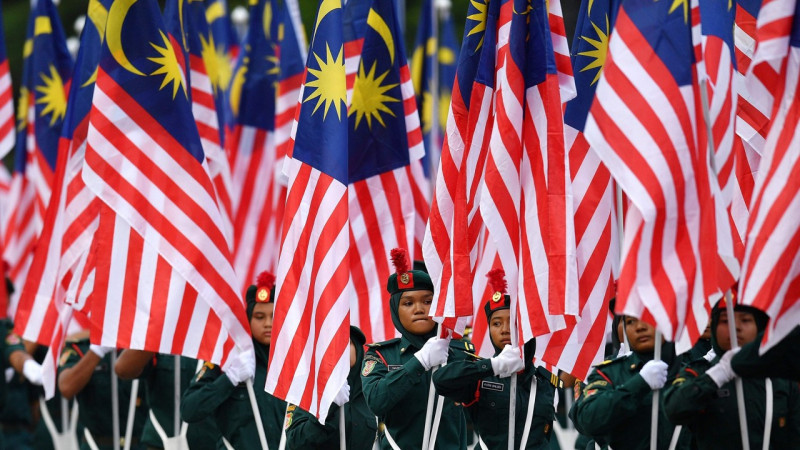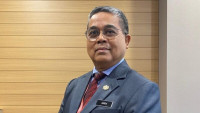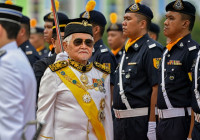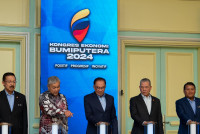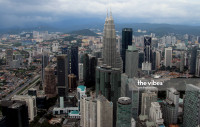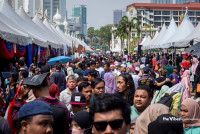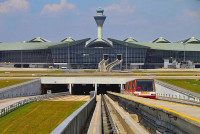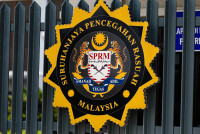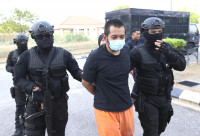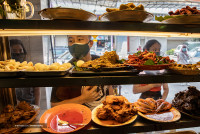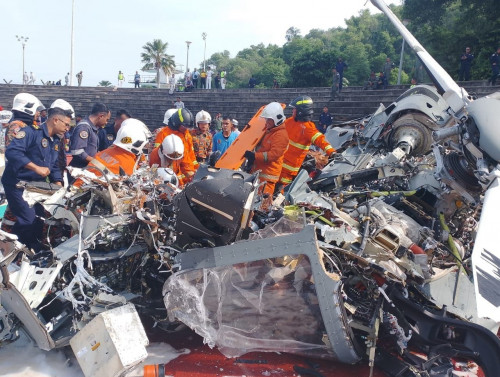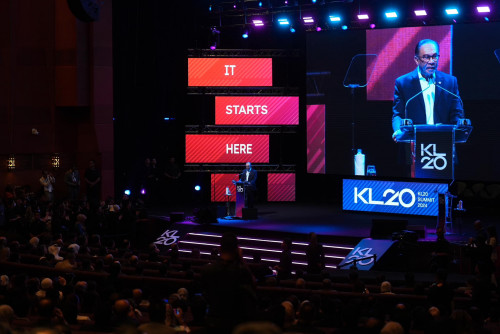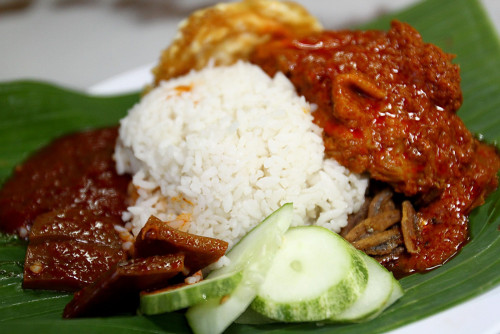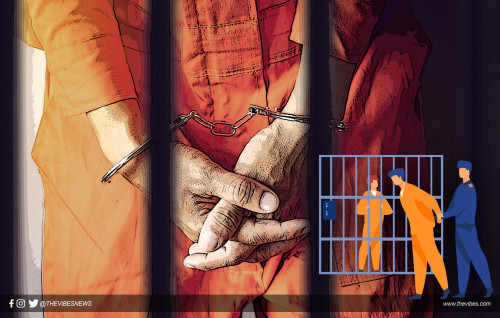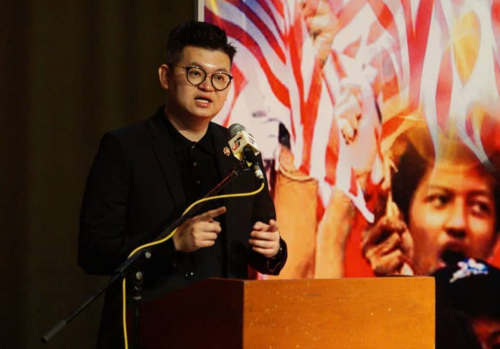TWENTY years ago, 26-year-old me was lucky to be a part of a delegation to South Africa to be part of the World Conference against Racism, Racial Discrimination, Xenophobia and Related Intolerance from August 31 to September 8, 2001.
This is where the Durban Declaration and Programme of Action (DDPA), an international framework to strive for racial justice, was adopted.
It was fascinating to be involved in the process of the DDPA being signed by participating countries, with the United Nations playing an important role.
It was also a very exciting experience for me. Countries like the United States and Israel pulled out at the last-minute, citing unfairness in linking Zionism to racism.
This year is the 20th anniversary of this key moment where the international community came together to address racism and agree on steps to take to create a fair and just society.
The declaration has been pivotal in laying the foundation for global efforts in combating and preventing racism, racial discrimination, xenophobia and related intolerance.
However, just three days after the DDPA was signed, 9/11 struck.
The success of the meeting in South Africa was overshadowed by these terror incidents, and the efforts achieved in the conference were harder to implement in such a volatile environment.
If I dare say so, the Western world, especially the US, was so caught up with the term “Islamophobia” instead of addressing racism as a global problem that is essentially the root of all evil.
Race relations and international diplomacy, as well as policies, were indeed made more complicated as the world was sent reeling from the aftermath of 9/11.
In the last 20 years, a lot of things have changed. Technology has changed, the way we interact with people has changed and the way we view the world has changed.
Globally, there is more action for inclusion and emphasis on cohesive community building to underline a more homogenous pluralistic living. However, there is still an underlying problem of racism and race relations everywhere. We can see it happening even in the most advanced countries around the world.
The US for example is one such case, where even after it elected an African-American man as president (Barack Obama), racial tensions remained high.
The election of Donald Trump as president was more of a pendulum reaction from the multitude of conservatives in the country after two partly successful terms under the Obama administration.
All the racial tensions that were kept simmering below the surface were ignited by one unfortunate incident – George Floyd’s murder.
The 46-year-old black man’s unjust murder by police officers sparked a global debate on police brutality and institutionalised racism.
The resurgence of the Black Lives Matter campaign spread globally, more widely than ever. Even Malaysians were taking to social media to express their fury over what happened to Floyd and the racist insinuations the incident symbolised.
Let us be reminded that a mural of Floyd painted on Israel’s separation wall in the Palestinian West Bank became an emblem of the global struggle, and that protestors in East Jerusalem held placards that declared: “From USA to Palestine, Racism is a crime”.
Even the global Covid-19 pandemic did not deter protesters around the world from taking to the streets to express their fury at widespread racism still present in one of the most advanced countries in the world.
There were a total of 2,000 protests in the US alone and another 60 countries taking part to condemn what happened to Floyd.
This led to renewed conversations around the world to address the issues of racism, racial discrimination, xenophobia and related intolerance. Even in Malaysia, the context of racism and discrimination was put under a microscope.
Twenty years after the DDPA was signed, we still ask if racism is prevalent in Malaysia. Unfortunately, it is.
The topic of today’s forum – is Malaysia spearheaded in the right direction? – is quite rightly timed against the backdrop of an anniversary commemorating one of the most important international frameworks for anti-racially discriminatory measures.
First and foremost, we still have a single-race party at the helm of the nation’s politics. Umno in all its shapes and forms has continued to plague the country with the party’s racial policies and doctrine.
Umno only does lip service when it claims it is a party that cares for all the races in Malaysia and wants racial harmony, but its actions are far from it.
Its policies and politics have destroyed the racial fabric of Malaysia instead of solidifying the foundations.
Unlike in PKR, where we emphasise racial hegemony even at our roots, Umno has continued to be a Malay- and male-dominated party.
Even in Umno’s latest manifestation to form the Perikatan Nasional government with Bersatu and other parties, the dominance of the Malay man can be clearly seen.
Other race-based parties like MCA and MIC are only given nominal seats and positions, such as in the Transport Ministry and Human Resources Ministry, which bear no real contribution to the administration.
Not only is there a lack of racial representation in the current administration, but there is also a lack of female leaders in a completely male-dominated scene. But that is another discussion altogether.
Back to racism, as our past government policies have not emphasised non-discriminatory behaviour in the country. There have been various systemic problems that have arisen.
It is rather interesting to note that the term systemic racism was used by Yuri Prasad in his latest article The Edict of Race, which was published in the latest Critical Muslim Journal, where according to him: “The systemic approach rests heavily on the idea that racism exists to perform a specific function within a capitalist society, that of creating and maintaining division, rather than merely reflecting the individual prejudices of people with biases.”
Despite Malaysia being a purported global champion to combat racism, there are happenings in the country that are contrary.
The Pakatan Harapan government’s initiative in 2018 to ratify the United Nations International Convention on the Elimination of All forms of Racial Discrimination (ICERD) was met with brickbats.
Misinformation to the public, mainly from Umno and PAS, resulted in nationwide protests against the ratification of ICERD, which was among the issues discussed in the Durban Declaration.
The ratification of ICERD would have been a big step from Malaysia towards ending other racially discriminatory policies in the country.
Among other prevalent racial issues in the country include racism in the housing market, where till this very day, race plays a huge role in determining tenancy statuses for certain races. This happens not just in rural areas but is far more widespread in urban areas, especially the Klang Valley.
Other instances include the job market, where harsh undertones like “Mandarin-speaking capabilities” are required, as well as scholarships from organisations only benefiting a particular race.
Sadly, like Floyd, there have been multiple occasions of custodial deaths where only a particular race was being targeted. There have been so many unanswered questions on how, why or what the cause of these unfortunate deaths are.
Recently, as the Covid-19 pandemic hit, another type of racial discrimination pervaded the country: xenophobia.
Xenophobia against migrant workers especially has been on the rise. There have been reports of crackdowns by authorities and ill treatment against these migrant workers. There is a lack of enforcement in protecting migrants’ rights.
Foreigners also have been previously discriminated against by local authorities and people for even obtaining their basic needs like getting the vaccine shots.
Foreign workers who were once the backbone of the country’s economy, were slighted and shunned allegedly due to poor hygiene.
After Prime Minister Datuk Seri Ismail Sabri Yaakob was sworn in, in his maiden speech, he urged Malaysia to huddle under the banner of Keluarga Malaysia that he claimed transcends race, religion and ethnicity. However, there has been no actual emphasis on making the Keluarga Malaysia phrase a reality. What does it really mean? Is it just a catchy phrase like 1Malaysia where it can be spun into a fully fledged PR campaign only to produce little to no result?
If Ismail Sabri really meant what he said by Keluarga Malaysia, he would immediately ratify international conventions regarding race and racial discrimination.
He would also locally put in measures or initiatives to correct the wrongs which have been done or to even address the systemic problems which have long troubled the country.
In the country’s coat of arms, there are the words “Bersekutu Bertambah Mutu”. If you look at the definition and interpretation of these words, they symbolise that Malaysians need to be allied to work better together.
Ismail Sabri needs to power through to design a future for Malaysia that is more inclusive and needs to pivot on the history that this country is beholden to its multiculturalism.
This will be the key reason for our country to go further and progress to be on the same platform as other countries.
In Parliament, recently, I had the opportunity to speak about the DPPA while debating the Yang di-Pertuan Agong’s royal address. I also mentioned it is time for Malaysia to emphasise the theme of love and harmony under “lita’arafu”.
As Prof Siddiq Fadzil (who recently passed away on August 31) put it: “Difference does not mean enmity, but strength and cultural richness. The keyword in understanding the purpose of the creation of diversity (race and ethnicity) is the word ‘lita’arafu’ in surah Al-Hujurat verse 13, which is usually translated as ‘to know each other’.
The word comes from the root word “arafa”, not only to know, but to know deeply through knowledge and experience. To know with only knowledge is “alima” in Arabic, but “arafa” is not only knowledge, it also needs experience.
What experience? The experience of living with the other person and internalising that person’s inner struggles, thoughts, vulnerabilities, personal languages, and so on.
I asked the government, considering recent events, would “lita’arafu” be underlined in every government programme and agenda to deal with the harsh realities of today?
There are still parties that represent a particular race when we are multiracial. There have been racial problems that have arisen when we were supposed to promote a homogenous society.
To move forward, how are we going to uphold the words “Bersekutu Bertambah Mutu”? What measures are we going to take? What initiatives are we going to introduce? Are we going to change the education system to reflect these new developments?
Nevertheless, all hope is not lost in Malaysia. The beauty of this country is that even in adversity, Malaysians find a way to overcome these challenges.
When the pandemic hit, many Malaysians were left without a job or even food. The white flag movement was started by Malaysians for Malaysians. This was regardless of race, religion or creed.
It was heart-warming to see Malaysians help Malaysians of other races and even foreigners were part of these programmes to give food and necessities.
This country is built on a foundation of races helping one another and this unique beauty can never be destroyed. In the face of hardship, Malaysians come together.
One of the cornerstones of the DPPA highlights the important role the youth play in fighting against discrimination. This includes racial and political inequality.
In Malaysia, at the height of the political crisis, the youth took to the streets in groups to oppose the atrocities committed by the ruling government.
The Lawan movement was spearheaded by the youth to combat adversity during the Covid-19 pandemic by urging then prime minister Tan Sri Muhyiddin Yassin to step down and reopen Parliament.
This youth-led movement eventually resulted in Muhyiddin resigning only to pass the baton to Ismail Sabri, which is akin to the saying “old wine, new bottle”.
But the point I want to make is that the youth are the future of the country. When they decide to pool their resources and talent, the results are unimaginable.
Racial discrimination is also a topic the youth should come together for to take the conversation to the next level in this country. Maybe then there would be impactful changes that will become reality.
In fact, I feel the youth have already started this conversation via social media, where they regularly address issues of colourism and racial discrimination.
However, more people need to be part of the conversation, and a significant way for young people to be more aware of these issues and to combat them is education. The education system needs to be revamped and updated to reflect global happenings.
More weight and importance should be put on the importance of a homogenous society and human rights education. There must be emphasis on anti-discrimination, anti-racism and anti-bias values to create a colour-blind country where all Malaysians can live together in dignity, equality and mutual respect.
Parents should put importance on basic qualities like human rights instead of just pushing their children to be academically inclined.
Public schools and institutions should be a breeding ground for new-age Malaysians who do not care about race, religion and creed, but place significance on good morals and ideals.
There must be some radical ideas thrown into the mix to create a more plural society. There might be some good if age-old policies and indoctrinations are revisited with the backdrop of this current day and age.
Some policies like the New Economic Policy might be worth revisiting to suit current needs. This has been highlighted by Datuk Seri Nazir Razak, whose father was the man behind NEP in the 1970s.
All in all, Malaysia needs to spearhead efforts in the right direction for the country to prosper. Not just for you and me, but for our future generations alike.
If the country continues to be played at the hands of power-hungry, greedy, conniving and evil politicians who use race and religion to divide, this beautiful country will be torn apart from the social fabric that makes us Malaysia, truly Asia! – The Vibes, September 24, 2021
This speech was presented by Shamsul Iskandar Mohd Akin, who is Hang Tuah Jaya MP, at the forum titled “20 years since the World Conference Against Racism, Racial Discrimination, Xenophobia and Related Intolerance, Durban 2001 – Is Malaysia spearheaded in the right direction?”



